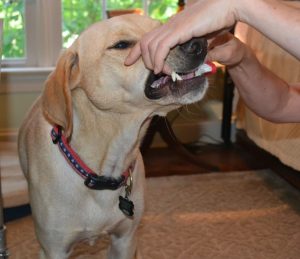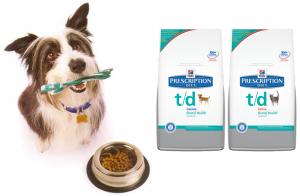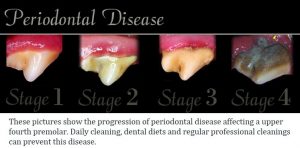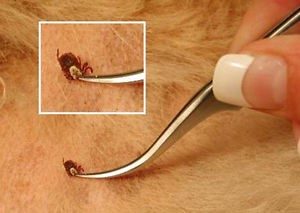5 Frequently Asked Questions At The Hospital
1. Does my indoor cat need vaccines?
It seems counter-intuitive, doesn’t it? If my cat does not go outside and does not encounter disease, then why does he need vaccines every year? Here are a half-dozen good reasons your veterinarian wants to keep your cat up-to-date on vaccines. If you are unsure if your cat is up-to-date on vaccines, contact your veterinarian today to find out.
- Your cat could accidentally get outdoors. They are curious about that big exciting world outside their windows and will not hesitate to go exploring. It only takes a few hours outside for an indoor cat to come in contact with a stray cat or wild animal carrying disease.
- If your cat ends up at a shelter, he or she could be exposed to sick cats. We all hope that this never happens, but as mentioned before, cats can and do escape from their home. If your cat is found but does not have any identity, such as a collar or microchip, the next stop is the local animal shelter. The stress of being taken to the shelter along with crowded shelter conditions can make cats more susceptible to disease.
- You cat may have a lifestyle change. When you bring that adorable kitten home, you are most likely expecting to have him or her for life. However, sometimes life brings changes beyond our control, such as divorce, death in the family, or a move, which can all affect your cat’s lifestyle. There are numerous cats that start out as indoor kittens but later become outdoor cats.
- Stress can cause latent disease to flare-up. Cats are often exposed to the feline herpes virus early on in life, especially if they come from a shelter or contracted the disease in-utero. Cats without up-to-date vaccinations can more easily contract respiratory infections or other disease that can cause latent or dormant disease to flare up in an already sick cat.
- Viruses such as Calicivirus and Feline Herpesvirus can be spread by inanimate objects. A “fomite” is any inanimate object that can carry an infectious organism. Grooming supplies and even shoes and clothing can act as a fomite bringing disease into your home.
2. How can I help my pet’s dental health at home?
You have noticed recently that Buddy’s breath is less than fresh and you are wondering how to help him? Maybe you have noticed that Buddy does not like to chew on toys or dry kibble that he used to love? Depending on the stage of Buddy’s dental disease, there are some good home care remedies that help to keep tartar and gingivitis at bay.
A. Teeth Brushing: If your pet allows it, brushing their teeth daily with a pet toothpaste (NOT human toothpaste) is the gold-standard for treating dental disease. It’s more work but definitely helps the most.
B. Dental diet: We recommend Hill’s Science Diet T/D dental diet. The T/D diet is a complete, balanced diet that can be fed on a daily basis and has been proven to clinically reduce dental disease. The T/D diet can be fed as treats as well, but less frequent use decreases the positive results. T/D is available at Dupont Veterinary Clinic.
C. Chew Products: OraVet Oral Chews (by the makers of Heartgard and Nexgard) are daily oral chews that reduce both halitosisand tartar accumulation. CET Rawhide Chews are rawhide treats coated with enzymes to help inhibit plaque and tartar. Blue Buffalo Dental Bones are another simple option to help reduce tartar. All are available at our hospital.
D. Food Additives: We recommend Clenz-a-dent Food Additive as another easy aid in slowing down plaque and tartar accumulation.
Here is an image displaying the 4 stages of dental disease. Make an appointment with your veterinarian at Dupont Veterinary Clinic to determine if your pet needs a professional cleaning and polishing. Some pets, especially those in stages 3 and 4, can start to lose teeth if your veterinarian does not step in to help your pet.
3. Is my pet overweight?
Obesity in pets is on a steady incline in the United States. Overweight pets are at a much higher risk for developing arthritis, orthopedic disease, cancer, diabetes, and other illnesses. It is important to first determine if your pet is overweight and then determine what his or her ideal weight would be. Click on the following link to be directed to a resource that will walk you through these steps. This article will show you a body fat index risk chart to determine how overweight your pet truly is, then on the second page it will determine what your pet’s ideal weight should be. Feel free to stop by Dupont Veterinary Clinic at any time to put your pet on the scale for a more accurate weight, especially while they are losing weight. There are diseases, such as hypothyroidism, that can lead to weight loss because of a decreased metabolism. If you are concerned about your pet’s weight, contact your veterinarian to have them help you develop a diet plan or recommend a diet for your pet and look for any illness that may be preventing your pet from losing weight.
4. What food should I be feeding my pet?
There are numerous foods on the store shelves and it can be overwhelming when trying to select the appropriate one for your pet. For puppies, make sure to get a food that is labeled for puppies as this provides better overall nutrition for their growing bodies. If you have a large or giant breed puppy, make sure to get a large breed puppy food because this helps provide better nutrition for their large, rapidly growing joints. Hill’s Science Diet has a great large breed puppy, toy breed puppy, or even puppy food (for those puppies of average size) for those youngsters at home. If your pet is between the ages of 1 to 7 and does not have any other dietary restrictions, we recommend selecting a diet labeled for adult dogs. If your pet is 8 years or older, we recommend a senior diet because this type of diet provides less calories for our less active pets as well as added nutrients to support joint health. We do not recommend selecting a diet that is listed for “all life stages” (this label is often listed on the back of the label) as this type of diet provides the same nutrients and calories that would be appropriate for a lactating mother or puppy as it would for a less active senior pet! Just like humans, pets have different nutritional needs at different stages of their life and we need to change their diets accordingly. If you are unsure of the food that you are feeding your pet, feel free to bring the food bag into your vet to have them give you a better nutritional assessment.
5. How do I remove a tick from my pet?
With the warm weather upon us we are seeing an increasing number of ticks on our pets. Here is a link to a short video that can help walk you through safe removal of a tick from your pet and signs and symptoms to look out for after the tick is removed. If you are concerned about removing a tick from your pet, you can schedule an appointment with the technicians at Dupont Veterinary Clinic to have them help you remove the tick. It is important, especially if you are noticing ticks on your pet, to put your pet on a tick preventative. If you are not sure if the monthly preventative your pet is on works against ticks, call your veterinarian to have them help you pick out the best product for your pet.
By Ashley Dawes, DVM








